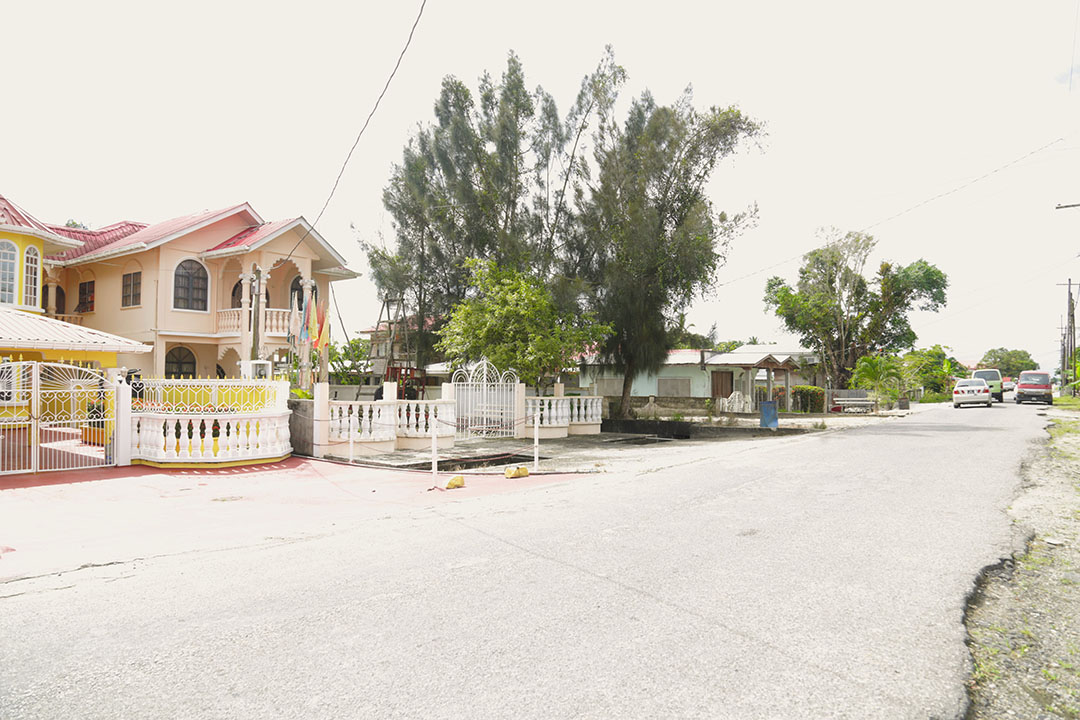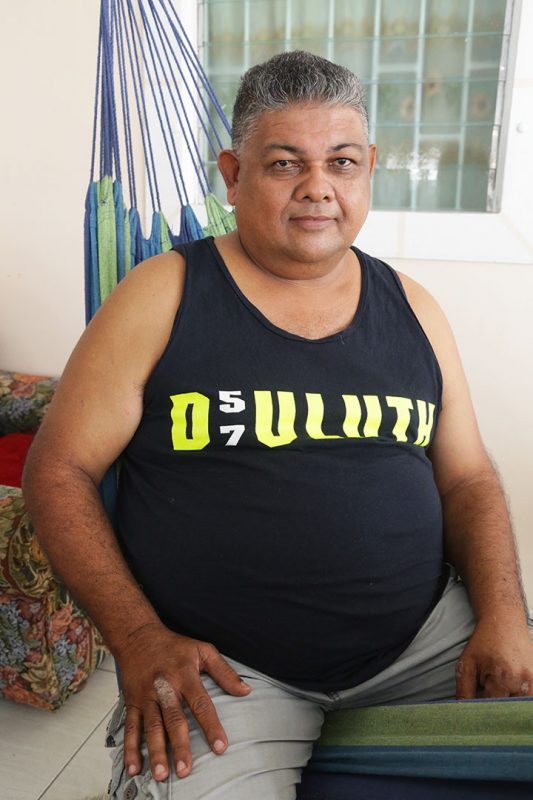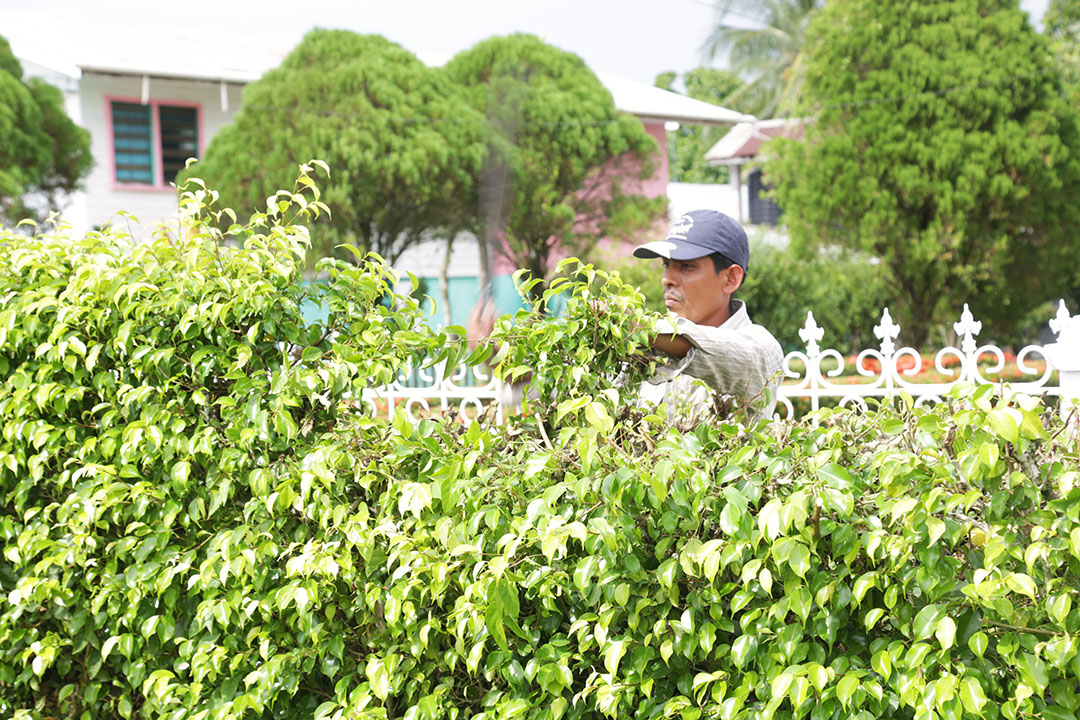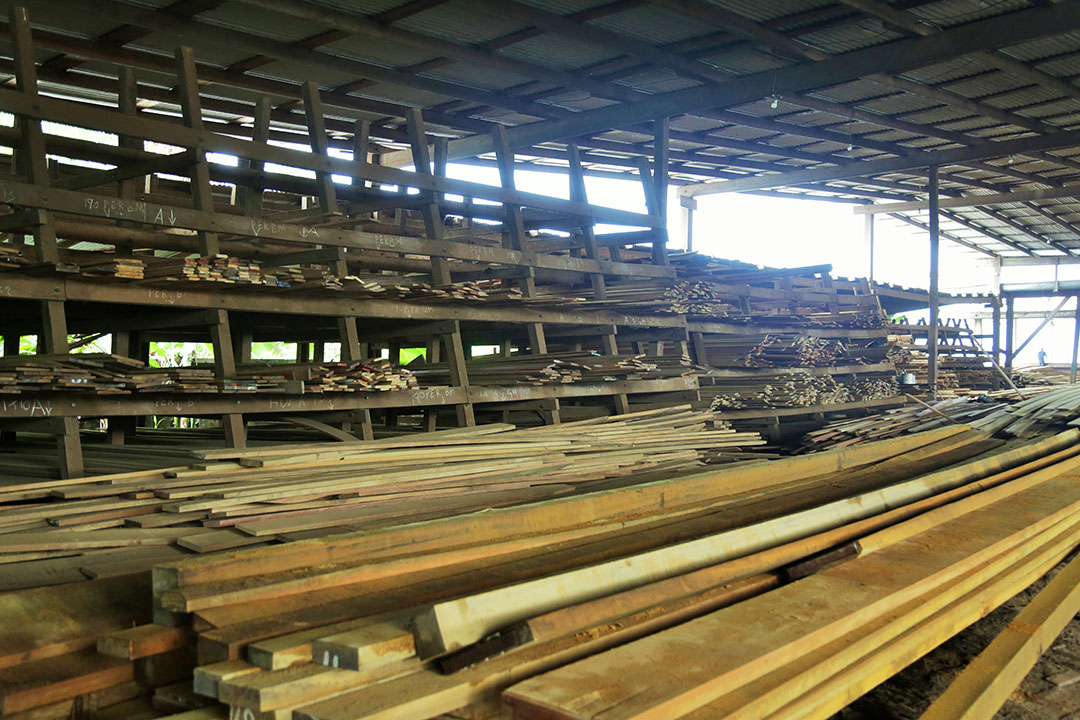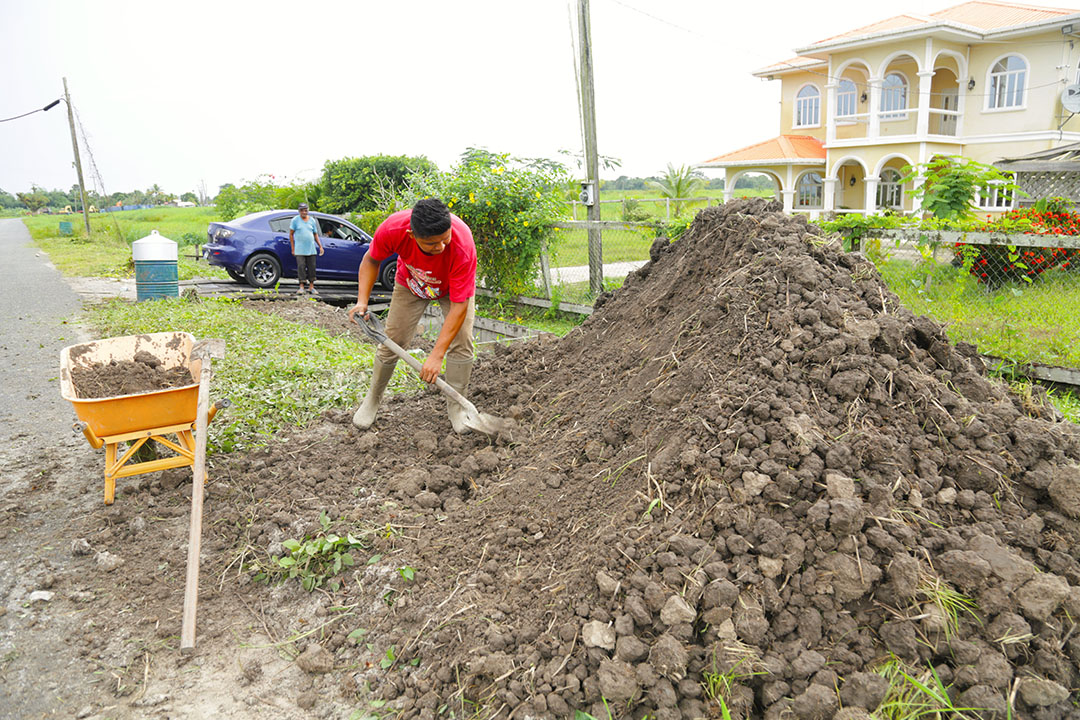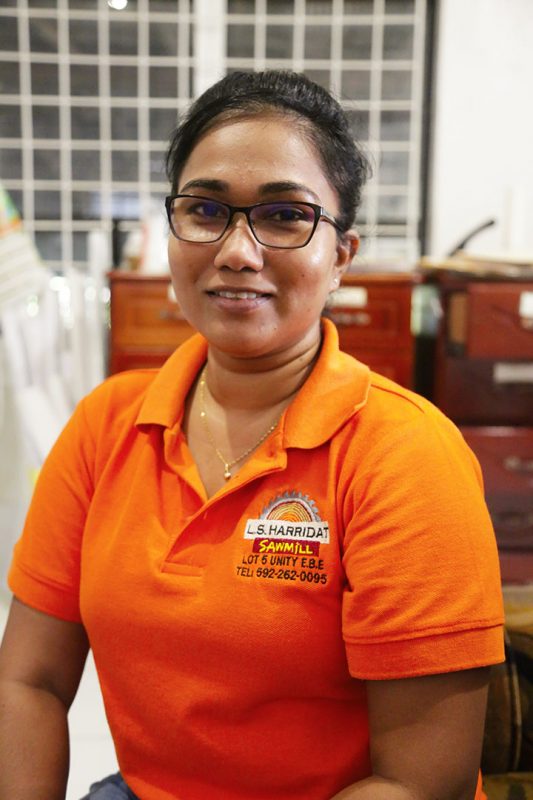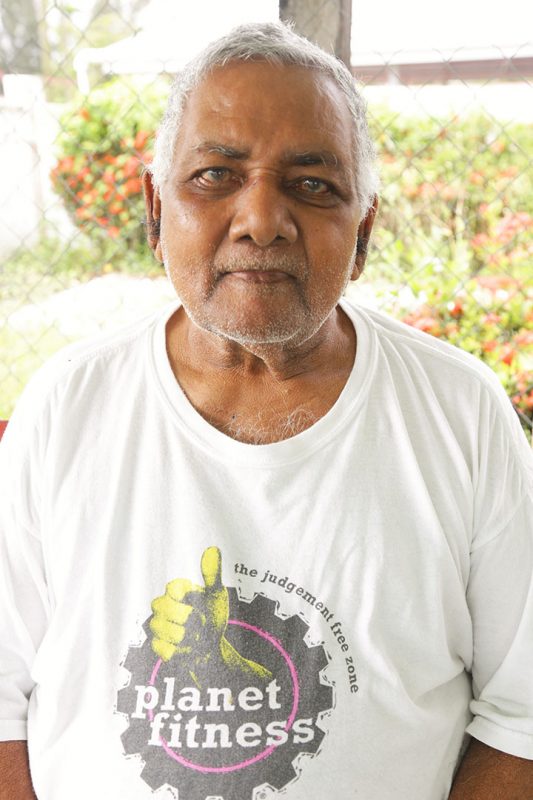Unity, East Bank Essequibo is a little village between Blake and Hubu. This beautiful neighbourhood is a haven to its 100-plus residents. The village is said to have existed since the time of the Dutch, with Hog Island situated opposite and Fort Island just minutes away by speedboat.
When Blake was featured in this series last month, Seenarine Bhukhan also known as Sir Mike had explained that it was called Johanna Cornelia before being named Blake and that Johanna Cornelia’s sister, Johanna Cecelia had owned Unity more than a century ago and the village had previously been named for her. Why it was changed to Unity, no one knows for sure, but they all agreed that it was the perfect name for a village, whose people live in harmony and work toward the betterment of each other.
Unity was originally a farming village where many of the families who planted ground provisions sold their produce at Parika and markets in Georgetown. But as the years wore on, villagers began working at the sawmill owned by Guyanese-Chinese Frank Hughes. With the Frank Hughes sawmill out of operation for decades, the L S Harridat Sawmill now provides employment. Residents who are not farming or employed with the sawmill are occupied with other jobs, most of them are self-employed.
The Parika/Hubu Road that runs through Unity is possibly the best section of the road and is maintained by the owner of the sawmill; although signs of erosion on the sides are visible.
Tarchand (only name) was sitting under his house shaving his beard when I arrived. At 81 years old, he is said to be the oldest resident in the village. Tarchand was born in Unity. In those early days, Unity had only three houses where the Seepersauds, the Baldeos, and Tarchand’s family lived.
“In my days we planted ground provision but today everybody doing different things,” Tarchand said. “People who live here come from all about to work here. They come to do farming and eventually they stay. We had the Frank Hughes Sawmill here that people used to work at too. Me personally, I did surveying. I work with the government. I see most of the regions in Guyana. I work with government until I retire. We deal mainly with sea defence and roads. I was what you call a chainman in the crew. We deal with measurements. Our sea defence in Unity is better than it was back then. In the years gone by it was deteriorating bad and we had flooding.”
The man boasted that the entire village lives in peace and anything that affects this peace has to be from outside, but this rarely ever happens.
Tarchand lives alone, surrounded by relatives though most of his children and their families are abroad. He visits them often but when he is at home, his daughter-in-law who lives several houses away takes care of his food and shopping for groceries.
Most of the villagers, he noted, are Hindus, with the remainder being Christian, except for one woman, who is a Muslim. The closest temple is situated in Hubu and many residents worship there.
As a child he attended Blake Primary School. “At the time I went to school we were living in Hubu, so we had to walk a mile to reach the school. I went to school with my two sisters. That was nice time,” he said.
Tarchand said that Unity and the rest of the villages lying along the Hubu/Parika Road need a better access road. In addition, he mentioned the rust-coloured water they are provided with courtesy of the Guyana Water Inc, saying it is not of much use.
‘No racial discrimination’
Things were busy at L S Harridat Sawmill, where among the notices at the entrance was the ubiquitous “no smoking” and the perhaps one-of-a-kind, “no racial discrimination.”
L S Harridat Sawmill has been in operation for 20 years and began with the manual cutting of logs in 1990. Speaking on behalf of her employer Lakeram Harridat, Neetu Salick told the World Beyond Georgetown: “Seventy-five percent of the people who are employed here are from around the area, while the others come from villages on the West Coast [Demerara]. Currently we have 40 persons employed with the sawmill.
“At one time we had 86 employees and due to the decrease of business, some of the employees leave. Some were laid off because sometimes all we can provide them with is three days or four days’ work, sometimes two days work and lots of them have their families they have to take care of, so they left.
“With the Christmas season coming on we getting one and two market but it’s still slow. This has been going on for almost five years. The workers come in for 7 in the morning and leave at 4 in the afternoon. Just about all the businesses open at 7 around here and at Parika. It’s only the bank that opens at 8 o’clock.”
Harridat, who sat in on the conversation, added, “One of the major problems: you see this investment size? It’s not today we start but since July 2000 and we deh long in the forestry thing. We buy from Barama and different company and then as the business start fall, we had to stop buy from them big company.
“Then we apply for a concession and when we apply for the concession we get a letter that we nah got what is required and the man what get the place, don’t have even a tractor so we in turn had to go and tell the man let we work a piece for he so right now me got machine on the ground deh.”
Because the company does not have a concession, it has to purchase logs. The issue with having to buy logs, the man said, is that he buys at a high price and therefore cannot sell lumber at a low price. He tries to sell at a reasonable cost and makes a marginal profit.
Aside from the sawmill, Harridat owns a lumberyard at Tuschen but because business is slow a lot of lumber is piled up at the sawmill instead of being at the lumberyard.
He indicated that under the previous administration, sawmill parts were duty-free, so whenever parts were purchased and VAT was paid, it could be reclaimed through VAT returns. However, he said, although VAT is 2% less now, there are no VAT returns.
A native of Blake, Harridat moved to Unity in his 20s. He was responsible for the school bus shed that was built in Blake. Harridat early life was spent planting provisions but wanting a better life he invested in the sawmill.
“In Unity the people are united and the people here are progressing. A lot of people are cooperative. I really want to see that a better road is built for us. I keep patching it because of the people here,” Harridat said.
Durbijai Tarchand, also known as Jaio, lives with his wife Sewlochnie.
Jaio grew up in Unity and attended Blake Primary School, but because his family was poor, he was not afforded a secondary education. He planted ground provisions with his father and would later sell at the Salem Koker six villages away.
Jaio moved from a life of farming to working a hire car on the road and now he drives his canter to transport lumber for customers of the sawmill.
When he is not working, he is at home relaxing. There is not much activity in Unity. For recreation, the family would go to Parika, Rose Ann Fun Park or travel all the way to Splashmins on the Linden-Soesdyke Highway. Asked why travel that far when Bushy Park Beach was just two villages away from Parika, Jaio claimed that there had been drownings at the beach over the years and it is not safe for swimming. In addition, he said, the area is known to be frequented by robbers.
Asked what he wants to see developed in the area, Jaio said without hesitation, “the road”, though noting that it has come a long way from the state it was in some 17 years ago. “This road was bad, bad,” he recalled. “When we used to work car in here, when you fall in a hole you got to come out the car, jack it up, put in wood under [the wheel] before you can drive out of that. You whole skin ah full ah mud when you done. This road was extremely bad. Up to now this road still bad, though not that bad and nobody not fixing it.
“When [Toyota] 212 car did just come out in 2005, me used to park me car and walk come home; used to tek like an hour. The amount of years that people punish with this road in here, this road should have been fixed. This area here producing a lot of lumber. Every day about nearly 20,000 BM or over coming out from here and I can’t see why they can’t fix this place. But you know what me thank God for is that it ain’t got no robbery in here and the police always patrolling.”
His wife, Sewlochnie, hails from Success, East Coast Demerara and remembers how hard it was for her to live in Unity initially.
“When I move here it was [underdeveloped], it was nothing like Success. We had light and water where I’m from,” she recalled. “I used to go back to see my family every two months and they used to come and visit too.
“When I did come it had two bus in the village. You had to bathe with the trench water and wash with it, wash wares and clothes. When I had to think about washing with the trench water, me used to cry.” She laughed as she shared this. Having to light the lamp at 5.30 was something new to her also. No one was as happy as Sewlochnie when the community was given access to potable water in 1996. Electricity came a little more than a decade later.
Today, however, the woman complained, she is disgusted with the rust-coloured water. “You wares got one colour, you white clothes got another colour,” she lamented.
